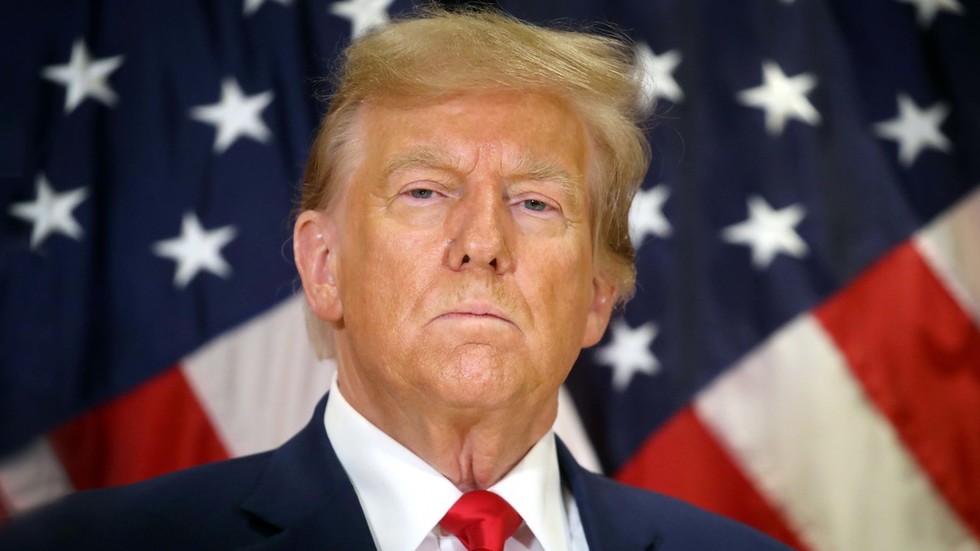As the U.S. presidential race heats up, the European Union (EU) is preparing for significant trade confrontations should Donald Trump secure a second term. Amid rising concerns of economic fallout, EU diplomats are bracing for the possibility that Trump will respond to perceived trade imbalances between the U.S. and EU by implementing a series of punitive measures. Reports indicate that officials in Brussels are particularly anxious, anticipating that Trump might escalate tensions over trade, especially considering his past actions which saw the introduction of steep tariffs on European imports during his previous administration. Trump’s flagging of serious discrepancies in trade relations, where he stated the U.S. has a $300 billion deficit with the EU, has prompted this renewed apprehension across Europe regarding the potential impact on commerce during the upcoming election cycle.
Historically, relations between Washington and Brussels have been strained, particularly since Trump’s imposition of a 25% tariff on steel and 10% on aluminum from Europe in 2018. This move, framed by Trump as a matter of national security, provoked retaliatory measures from the EU, targeting American products like Harley-Davidson motorcycles and Levi Strauss jeans. Moreover, Trump’s past threats to implement tariffs on EU car exports left Europe reeling, and many officials noted that they were shocked by his bold approach. Learning from these experiences, European leaders are reportedly more prepared this time around, suggesting that they plan to respond decisively to whatever actions Trump might take if he returns to the White House.
In response to the looming threat of trade warfare, the EU is coordinating an impact assessment designed to prepare the bloc for potential economic repercussions arising from a Trump presidency. The European Commission is tasked with overseeing this process, which underscores the seriousness with which the EU is taking the situation. The message from EU diplomats is clear: if Trump acts aggressively against European commerce, they will “hit back hard.” One diplomat remarked that they are optimistic about winning any potential trade war, illustrating a newfound confidence in the bloc’s economic resilience and strategy in the event of conflict.
Trump’s commitment to using tariffs as a diplomatic tool continues to resonate throughout his campaign, with promises of implementing a baseline 10% duty on imports from countries he views as unfair trading partners. During a recent rally, he expressed his admiration for tariffs, calling them “the most beautiful word in the dictionary.” This rhetoric is evocative of his broader trade strategy, which has consistently aimed at reshaping global supply chains in a manner that favors U.S. economics over international counterparts. Notably, Trump has targeted German automakers, vowing to impose hefty tariffs which he argues would compel manufacturers within the EU to relocate their production to the U.S., strengthening American manufacturing capacity in the long run.
With Trump’s aggressive positioning, the EU faces mounting pressure to formulate a robust defense against possible trade challenges. The bloc’s anticipated response, informed by its past experiences, is likely to include a combination of retaliation and strategic diplomacy. EU leaders are conscious that Trump’s trade tactics are not merely economic but are also reflective of his broader political narrative aimed at solidifying his voter base. Therefore, should the EU take action, it will necessitate a calculated approach to ensure that any retaliation does not spiral into a full-fledged trade war that would adversely affect both economies.
The potential ramifications of a Trump presidency for EU-American trade relations illustrate a delicate balance of power. The disparate economic interests at stake reveal the complexities of international trade in the current political climate. There is a collective understanding among EU officials that appearing weak in the face of aggressive U.S. policies would undermine their standing in global markets, and the bloc is poised to leverage its economic strength as a countermeasure to the potential tactics of the Trump administration. With the stakes so high, the upcoming election could pivot on these vital economic considerations, shaping the future dialogue between the EU and the United States in significant ways. As both sides strategize their next moves, it becomes evident that the potential for conflict looms large on the horizon.

